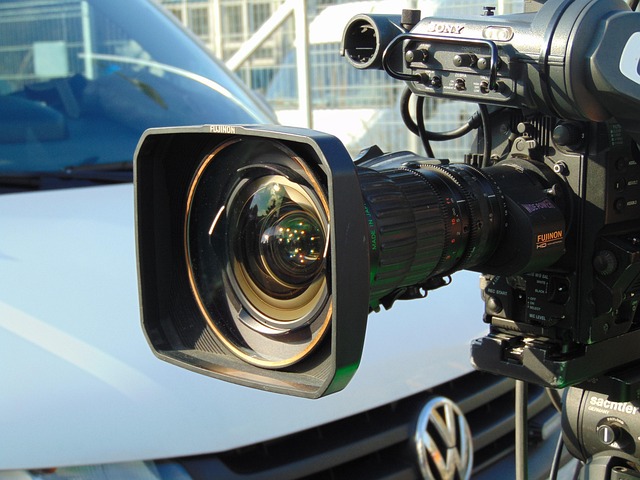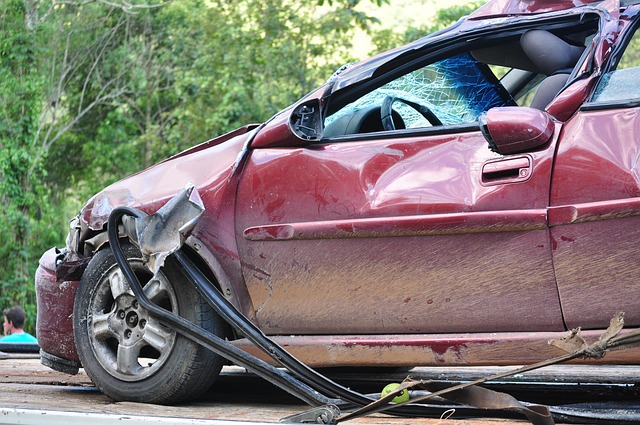In the dynamic world of e-commerce, collision coverage insurance is a critical component for business protection and operational continuity. With an increasing number of specialized delivery vehicles navigating urban environments, collision coverage safeguards against accidents, natural disasters, theft, and vandalism, minimizing financial losses and disruptions to supply chains. It offers two main options: Comprehensive Collision Coverage for broad asset protection and Collision Damage Coverage focusing on high-value merchandise. Exclusions like intentional damage and high-risk activities must be considered. Tailored policies based on vehicle value, transported goods, and risk profile ensure adequate coverage. As e-commerce evolves with advanced technologies and dynamic service models, collision coverage adapts to meet unique challenges, ensuring businesses stay protected while growing.
In the dynamic landscape of e-commerce, with vehicles playing a crucial role in delivering goods, understanding collision insurance has become essential. As the hustle and bustle of online retail intensifies, so do the risks on the road. This article delves into the intricacies of collision coverage for e-commerce vehicles, exploring topics from the causes of collisions to the benefits of comprehensive protection. We’ll navigate the various policy types, their workings, common exclusions, and how to choose the best plan for your business.
Understanding E-commerce Vehicle Collisions

In the dynamic landscape of e-commerce, the rise of delivery vehicles tailored for online retail has led to a unique set of challenges on the roads. These “e-commerce vehicles” often operate within dense urban areas, navigating through busy streets and narrow alleys to deliver packages directly to customers’ doorsteps. This new paradigm brings an increased risk of collisions due to factors like traffic congestion, pedestrian crossings, and the need for quick, efficient routes. Understanding these risks is crucial in order to mitigate potential losses.
Collision coverage plays a vital role in protecting businesses and drivers alike. It offers financial safeguards against the financial burden of accidents, ensuring that repairs or replacements can be made without straining operational budgets. For e-commerce operations relying heavily on timely deliveries, collision insurance becomes an indispensable component, enabling them to continue their services uninterrupted even in the face of unexpected collisions.
The Role of Collision Insurance in E-commerce

In the dynamic landscape of e-commerce, where packages and goods are constantly in transit, the role of collision insurance cannot be overstated. It serves as a critical safety net, offering collision coverage that protects against unexpected incidents such as accidents, natural disasters, or acts of vandalism. This form of insurance ensures that businesses can continue their operations uninterrupted, even in the face of unforeseen circumstances that could damage or destroy valuable inventory and delivery vehicles.
Collision coverage plays a pivotal role in maintaining supply chain efficiency and customer satisfaction. By insuring against these risks, e-commerce businesses can mitigate financial losses, reduce delays caused by replacement or repair, and uphold their reputation for reliable service. In today’s fast-paced market where customers expect swift and dependable delivery, collision insurance is a game changer that enables businesses to navigate the intricate labyrinth of logistics with greater peace of mind.
Types of Collision Coverage for E-commerce Businesses

E-commerce businesses that operate a fleet of vehicles, whether it’s for delivery services or logistics management, need to be prepared for potential collisions and accidents. Collision coverage is an essential aspect of insurance that protects against financial losses incurred during such incidents. There are primarily two types of collision coverage options available for e-commerce businesses:
Comprehensive Collision Coverage: This type of coverage provides protection for vehicles against a wide range of damages, including those caused by accidents, natural disasters, theft, and vandalism. It covers repairs or replacements of the vehicle, up to the actual cash value (ACV) minus the deductible. Comprehensive collision insurance is ideal for e-commerce businesses that want a robust safety net for their assets as it ensures they can continue their operations without significant financial setbacks after a mishap.
Collision Damage Coverage: More focused than comprehensive coverage, this option specifically insures against damages resulting from collisions with other vehicles or objects. It covers repairs and replacements, but typically up to the declared value of the vehicle, meaning the policyholder may have to cover any amount exceeding this value out of pocket. This type of collision coverage is suitable for businesses that primarily deal with high-value merchandise and want to safeguard against potential losses resulting from accidents involving their delivery vehicles.
How Does Collision Insurance Work?

Collision insurance, a crucial component in the e-commerce logistics puzzle, plays a pivotal role in safeguarding your vehicles from unexpected incidents. When you opt for collision coverage, you’re essentially protecting yourself from financial burdens arising from accidents or other mishaps that may damage your delivery vehicles. This type of insurance kicks in when your vehicle incurs damages due to collisions with other cars, objects, or even curbs.
The process is straightforward: if an insured event occurs, the collision insurance provider assesses the damage and covers the repair costs up to the policy limits. This ensures that your e-commerce operations remain uninterrupted as your vehicles are repaired swiftly, minimizing downtime and potential losses. By including collision coverage in your insurance portfolio, you create a safety net that offers peace of mind, allowing you to focus on growing your online business without the constant worry of financial surprises from accidents.
Benefits of Comprehensive Collision Protection

Comprehensive collision protection for e-commerce vehicles offers a multitude of benefits that extend far beyond mere financial reimbursement after an accident. This type of coverage acts as a robust safety net, safeguarding not only the physical integrity of your delivery vehicles but also the stability and reputation of your e-commerce business. By including collision coverage in your insurance policy, you gain peace of mind knowing that unexpected incidents like fender benders or more severe collisions are financially manageable.
Moreover, collision protection can help streamline the claims process, minimizing downtime for both your fleet and delivery routes. Efficient claims handling allows you to quickly get back on track, ensuring uninterrupted service to your customers. In a highly competitive e-commerce landscape where timely deliveries are paramount, comprehensive collision protection becomes an indispensable asset, enabling you to maintain customer satisfaction and foster long-term business relationships.
Common Exclusions in Collision Policies

Collision insurance for e-commerce vehicles, though crucial, comes with its own set of exclusions. Common scenarios that are often not covered under collision policies include incidents involving intentional damage, such as vandalism or hit-and-run cases where the driver is unknown. Additionally, policies typically do not extend to losses incurred during certain high-risk activities, like racing or testing vehicles on unsanctioned tracks.
These exclusions are important considerations for e-commerce businesses operating a fleet of delivery vehicles. Understanding what’s not covered helps in making informed decisions about additional insurance options or safety measures needed to protect against unexpected events that could lead to significant financial losses, especially given the valuable nature of modern e-commerce fleets.
Choosing the Right Collision Insurance Plan

When selecting a collision insurance plan, it’s crucial to understand your specific needs and the risks associated with e-commerce vehicle operations. Collision coverage is an essential component that protects against financial loss in case of accidents. However, different policies offer varying levels of protection and exclusions. It’s important to consider factors like the value of your vehicles, the types of goods you transport, and your business’ specific risk profile.
Choosing a plan that provides comprehensive collision coverage ensures that repairs or replacements are covered, minimizing financial setbacks. Reviewing policy details carefully will help identify limitations and ensure you’re adequately protected. This proactive approach allows e-commerce businesses to focus on growth while maintaining peace of mind, knowing their investments are safeguarded against unforeseen events.
Case Studies: Real-World Collision Insurance Scenarios

In the dynamic landscape of e-commerce, where delivery vehicles are a critical component, understanding collision insurance becomes paramount. Let’s explore real-world scenarios to highlight the significance of Collision Coverage. Consider a case where a popular online retailer’s fleet of drones experiences a technical malfunction during a high-density urban delivery, leading to an unexpected collision with a pedestrian bridge. Such incidents can cause significant damage to property and, more importantly, pose risks to human safety. Here, a robust Collision Coverage policy would step in, providing financial protection against repair or replacement costs, as well as potential legal liabilities arising from the incident.
Additionally, imagine a scenario involving a delivery van owned by an e-commerce startup, which gets into a fender bender with another vehicle during peak hour traffic. Without adequate Collision Insurance, this minor accident could result in substantial expenses for repairs and legal fees. However, a well-designed policy tailored to the unique risks of e-commerce deliveries can offer comprehensive coverage, ensuring the business can swiftly address the issue and maintain seamless operations without breaking the bank.
Future Trends in E-commerce Vehicle Collision Coverage

As e-commerce continues to grow, so does the number of vehicles used in its delivery processes. This evolution presents both opportunities and challenges for collision coverage. Future trends indicate a shift towards more comprehensive policies that account for the unique risks associated with last-mile deliveries. Advanced technologies like autonomous driving and electric vehicles (EVs) will play a significant role in shaping this landscape. Insurers are likely to adapt by offering specialized plans tailored to these new vehicle types, ensuring enhanced safety and reduced environmental impact.
Additionally, there’s a growing demand for real-time tracking and telematics solutions integrated into collision coverage. These innovations enable precise risk assessment, allowing insurers to provide personalized rates and immediate claims processing. With the rise of subscription models and on-demand services, dynamic coverage options that adapt to changing business needs will become more prevalent, ensuring e-commerce businesses stay protected as their operations evolve.
